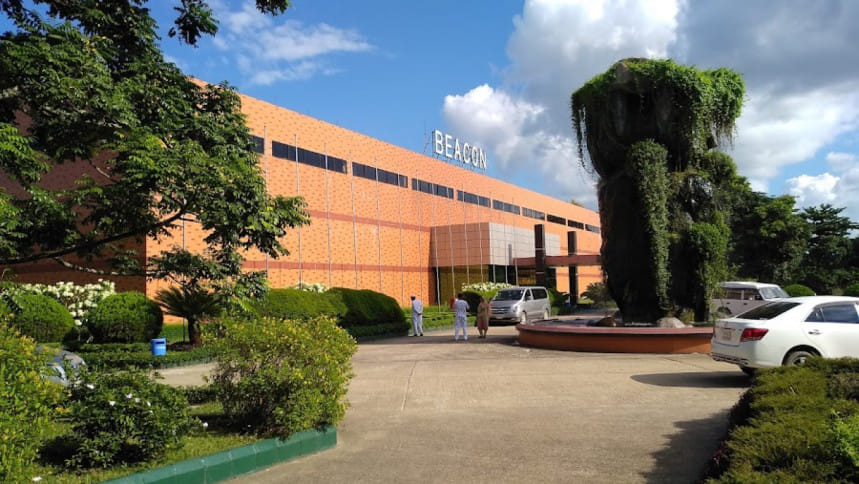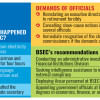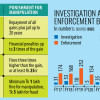Beacon Pharma tricked general shareholders

For years, investors believed that Beacon Pharmaceuticals was an export-driven company, contributing to the country's economy and increasing its profitability. But beneath the surface, the reality was quite different.
A sudden and unexplained halt in direct exports in 2018-19 went unnoticed, as the company continued to paint a rosy picture in its annual reports.
In truth, Beacon Pharma had not stopped exporting—it had simply found a way to shift the benefits of exports to a privately-owned company, its own sister concern, depriving general shareholders of their fair share.
Beacon Pharmaceuticals, a publicly listed drug producer, had been reporting exports in its financial statements since 2012-13. However, in its 2018-19 report, its exports abruptly dropped to zero. Investors were left in the dark as the drug maker did not disclose what was happening behind the scene.
Beacon Pharma didn't actually stop exporting -- it simply changed how it exported.
"If a company stops all exports, it must disclose this information. Failing to do so is a direct violation of securities laws."
Instead of shipping its products directly to the global market, it began selling them to its sister concern, Beacon Medicare, which then exported them abroad. The catch? Beacon Medicare is privately owned by Beacon Pharma's chairman and directors, meaning that the profits from exports now flowed into the privately held company rather than the publicly listed one.
Since Beacon Medicare is not a subsidiary of Beacon Pharmaceuticals, none of the export proceeds appeared in Beacon Pharma's financial reports. At best, the listed company earned a portion of the profits from selling its products to Beacon Medicare—but the larger export earnings went directly to the privately-owned firm.
Had Beacon Pharma exported directly, these profits would have been included in its earnings, benefiting general investors with higher dividends.
A representative from Beacon Pharma admitted selling drugs to its sister concern, but said it was "a temporary measure due to logistical issues". He also denied that the move caused the general shareholders any financial loss.
Former Awami League lawmaker from Brahmanbaria-5 Mohammad Ebadul Karim is the managing director of Beacon Pharma and chairman of Beacon Medicare. His son Mohammad Niazul Karim is the managing director of Beacon Medicare.
Despite ceasing direct exports, Beacon Pharma continued to boast about its international market presence in its annual reports until FY23. This misleading information helped maintain an illusion of strong business performance. However, in the FY24 report, the company finally dropped any mention of exports, exposing the misleading nature of its previous reports.
BREACH OF RULES
International Accounting Standards (IAS) require companies to disclose related-party transactions in full, so that investors can assess whether sales to sister concerns are being conducted at fair market prices.
However, Beacon Pharma did not disclose whether it was selling its products to Beacon Medicare at below-market rates, keeping investors unaware of how much profit was being transferred to the private firm.
According to the Bangladesh Securities and Exchange Commission (BSEC), any significant business change—such as stopping exports—must be disclosed within two hours of the decision. Beacon Pharma violated this rule.
"If a company stops all exports, it must disclose this information. Failing to do so is a direct violation of securities laws," said Faruq Ahmad Siddiqi, former chairman of BSEC.
He further said that establishing a separate entity to handle sales in this way suggests a deliberate attempt to deprive shareholders by shifting profits elsewhere.
Beacon Pharmaceuticals, which launched operations in 2006, started to sell its drugs to Beacon Medicare in 2018-19, the very year the sister concern was founded.
But its financial favours to Beacon Medicare didn't stop with exports. The listed company also provided generous credit facilities, allowing its sister concern to delay payments.
In FY23, Beacon Medicare owed Tk 160 crore in trade receivables against drug purchase—out of Beacon Pharma's total of Tk 208 crore. In FY24, trade receivables climbed further to Tk 275 crore, yet the company stopped reporting how much of this was owed by Beacon Medicare, according to Beacon Pharma's financial statements.
Beacon Pharma was also lending large sums to its sister concerns. By FY23, Beacon Medicare had received Tk 162 crore in loans, while additional funds were funnelled into other related companies, including Beacon Development, Beacon Business Solution, Mek Auto Bricks, Mek Parmateek, Beacon Nutraceuticals, and Beacon Oncology, its annual report shows.
Beacon Pharmaceuticals took out Tk 669 crore in short-term bank loans that year but lent Tk 262 crore—39 percent of the loan amount—to its sister concerns. While the listed firm earned Tk 22 crore in interest from these loans, questions remain about whether these loans were given at below-market rates. If so, this would indicate that Beacon Pharma was offering financial benefits to its sister concerns at the expense of its own profitability.
Besides, there is a limit on how much listed companies can lend to private firms owned by their directors. According to BSEC regulations, such loans cannot exceed 50 percent of the paid-up value of the directors' shareholding.
However, Beacon Medicare's Chairman Ebadul Karim and his family hold 39.86 percent of Beacon Pharma shares, with a paid-up value of Tk 92 crore. This means they were legally allowed to receive a maximum of Tk 46 crore in loans—not the Tk 262 crore they actually obtained.
"This is a blatant violation of securities laws," Siddiqi said. "A listed company cannot lend such excessive amounts to its sister concerns."
TRANSFER PRICING
The way Beacon Pharmaceuticals structured its exports and loans raises serious concerns about transfer pricing—a practice where a company shifts profits by selling goods or services to a related entity at artificially low prices. While transfer pricing itself is not illegal, it becomes problematic when it is used to manipulate earnings, avoid taxes, or unfairly divert profits from public shareholders to private entities.
In this case, Beacon Pharma sells its products to Beacon Medicare, which then exports them abroad. If these sales were made at below-market prices, it would mean that Beacon Pharma's shareholders were losing out on profits that were instead being captured by the privately held Beacon Medicare.
Meanwhile, Beacon Pharma's financial health has been deteriorating. Its debt-equity ratio nearly doubled in the past year, rising from 0.82:1 to 1.46:1, signalling increasing financial risk. Meanwhile, its return on assets has plummeted from 10.11 percent in FY21 to just 2.75 percent in FY24. Its net profit margin stood at a weak 4.86 percent in FY24—far below competitors.
In the same year, the net profit margin was 26 percent for Square Pharmaceuticals, 10 percent for Ranata, 13 percent for Beximco Pharmaceuticals and 8 percent for ACME. Even Ibn Sina's profit margin was around 6 percent—the company has a reputation for selling products at low prices.
'BETRAYAL'
For investors like Abdul Mannan, the lack of disclosure was a major betrayal. "I had no idea the company had stopped exporting directly," he said. "The company misled us by continuing to claim it was an export-oriented business."
What the company has done is window dressing as it gave a perception that it is an export-oriented company, but the benefit of the export was divided and a portion went to its owners' company, said AF Nesaruddin, former president of the Institute of Chartered Accountants of Bangladesh (ICAB).
"There is transfer pricing," he said, adding that as Beacon Pharmaceuticals is not an investment company, it should not lend to its sister concern by taking bank loan.
"All of this affected the listed firm's profit. Had the company exported directly, it would get export incentive and tax rate benefit. This means, the company is a loser in two ways," he added.
According to him, this is an overall governance issue, too, for the company as it did not comply with the rules and its auditor did not raise any flag to protect the interest of general shareholders.
BEACON'S RESPONSE
Md Jalal Uddin, CFO and head of IT at Beacon Pharma, claimed that the switch to exporting through Beacon Medicare was a temporary move due to logistical issues.
"Now, we have all arrangements in place to export drugs directly, so we are going to export directly from next month (March)…. It is not just that you approached for comments for a report and so we are going to start exporting directly. We are ready in reality."
He acknowledged that the company should have disclosed its decision to export through Beacon Medicare. However, he argued that the company did not conceal the change, as it was shown in financial reports that exports had become zero in FY20.
"I hope investors are already aware that Beacon Pharmaceuticals is not exporting drugs directly," he added, insisting that general shareholders did not lose any money as a result of exports through the sister concern.
Regarding the high trade receivables at Beacon Medicare, Jalal said the company has been collecting funds faster now, reducing receivables to Tk 134 crore despite rising sales to the company.
About the loans to sister concerns, the official claimed that the interest rate charged on loans provided to them is the same as what Beacon Pharmaceuticals paid to banks. "So, Beacon Pharmaceuticals is not facing any loss from the loans."
Jalal acknowledged that neither Beacon Pharmaceuticals nor Beacon Medicare is receiving any export incentives.
Md Shah Alam Mridha, a partner of Habib Sarwar Bhuiyan & Co, which audited the financial statements of Beacon Pharma, did not respond to our email.
BSEC's Spokesperson Abul Kalam Said the regulatory body has opened an investigation into the matter. "We will take action, if we find any breach of securities rules."

 For all latest news, follow The Daily Star's Google News channel.
For all latest news, follow The Daily Star's Google News channel. 








Comments